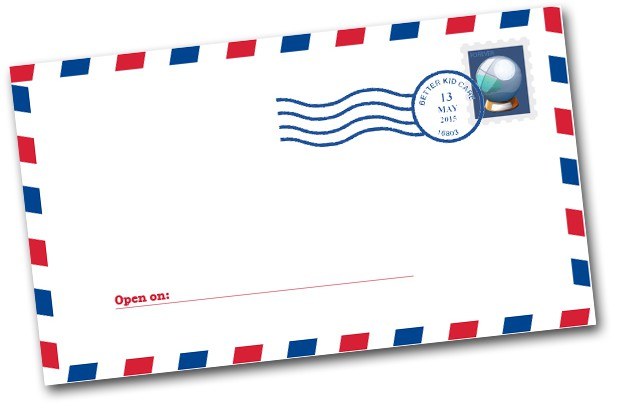Posted: September 10, 2015
“As an early childhood educator, you must continually look forward and look back, even as you stay focused on the real children in front of you and the context of their lives.” (Curtis and Carter 2011)

Professional reflection and growth is important to all adults working with children. Although there are many professional standards required of early educators by their program, state, and educational communities worldwide, it is ultimately personal professional standards, stories, and reflections that matter most.
In her blog post titled "How to Tell Your Own Life Story," author Susan Cain states, "…the stories we tell about ourselves are the key to our well-being. If you've interpreted the events of your life to mean that you're unlucky or unwise, it's hard to look optimistically at the future. Conversely, if you acknowledge that you've made mistakes and faced difficulties but seek (or have already glimpsed) redemption, you'll feel a much greater sense of agency over your life."
In essence, what you think about your story, and in this case your professional story, matters.
The Process of Becoming
Professionalism is an ongoing, evolving process; not only is a physical professional image presented, but that image connects with a professional way of thinking, being, and evolving. As stated by Rick Caulfield, "Professionalism is not an end in itself--a state of being--but an ongoing effort--a process of becoming."
The National Association for the Education of Young Children has identified specialized training and education standards regarding "What tomorrow's teachers should know and be able to do." In one identified standard, "Becoming a professional," NAEYC states that in becoming professionals, early childhood professional students "…identify and conduct themselves as members of the early childhood profession. They know and use ethical guidelines and other professional standards related to early childhood practice. They are continuous, collaborative learners who demonstrate knowledgeable, reflective, and critical perspectives on their work, making informed decisions that integrate knowledge from a variety of sources. They are informed advocates for sound educational practices and policies."
The journey of the early childhood professional evolves. It requires continual, intentional reflections about the practices, responsibilities, strengths, challenges, as well as hopes and dreams for working with young children.
Thinking in Questions
"Questions can be like a lever you use to pry open the stuck lid on a paint can." - Fran Peavey
Questions spark important discoveries for continued professional growth and learning. Tap into your professional curiosities and authentic, honest voice. The professional questions you ask can help you better understand the past, the future and the present. The Right Question Institute states, "Questioning is the ability to organize our thinking around what we don't know."
What questions should you ask your professional self? Use the prompts and questions below for reflection.
Teacher Tip: Jot your ideas in a journal. Keep a teaching journal nearby at work and at home to capture insights and reflections.
Shine your light
What are your strengths? What are you proud of? What specific professional accomplishments did you complete this year? In your work, what brings you the most joy? How might you be of professional support to others?
Challenge yourself
What are you thinking about trying? If you could change one thing in your work, what would it be? What challenges you? Is there anything that you want to ask but are unsure of who or how to ask?
Dig deep
What are you curious about? Do you know others with similar interests? What PLC (Professional Learning Communities) might be of support? What questions continue to come to mind? How can you grow your PLN (Personal Learning Network)? What PLN would you like to try: classes, books, blogs, webinars, online learning or something different?
Look to the past, the future, and the present
What would you tell the former professional you? What one new change would you like to try in your work? What currently makes you happiest and proud in your work?
"Becoming an exemplary teacher is not a matter of chance, it is a matter of the choices we make; it is not something that simply comes with experience, it is something that must be purposefully achieved." - Robert John Meehan
Put it in writing: A letter to my future professional self
Put your professional reflections and plans in writing. What would you say to the future professional you? Open the handout "A letter to my future self." Use this letter to write what you want your future professional self to remember, know, and think about.
References
- Cain, Susan. 2015. "How to Tell Your Own Life Story." Blog. Quiet Revolution.
- Caulfield, Rick. 1997. "Professionalism in Early Care and Education." Early Childhood Education Journal 24(4):261-263.
- Curtis, Deb, and Margie Carter. 2011. Reflecting Children's Lives: A Handbook for Planning Your Child-Centered Curriculum, 2nd ed. Red Leaf Press.
- National Association for the Education of Young Children. 2009. "Standards for Professional Preparation." NAEYC.
- National Association for the Education of Young Children. 2009. "Where We Stand on Professional Preparation Standards." NAEYC.
- Peavey, Fran. "A More Beautiful Question." On Amorebeautifulquestion.com.

